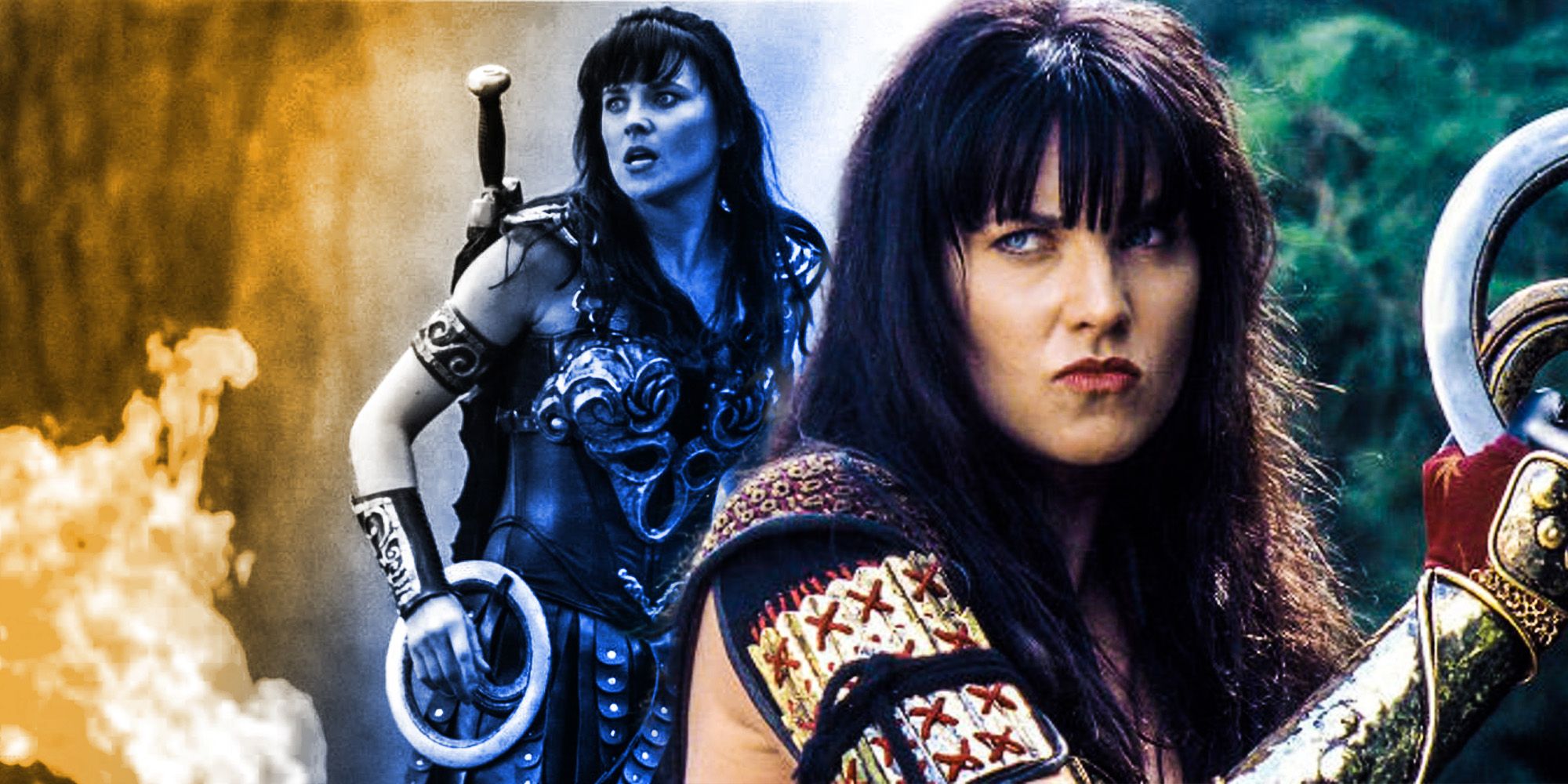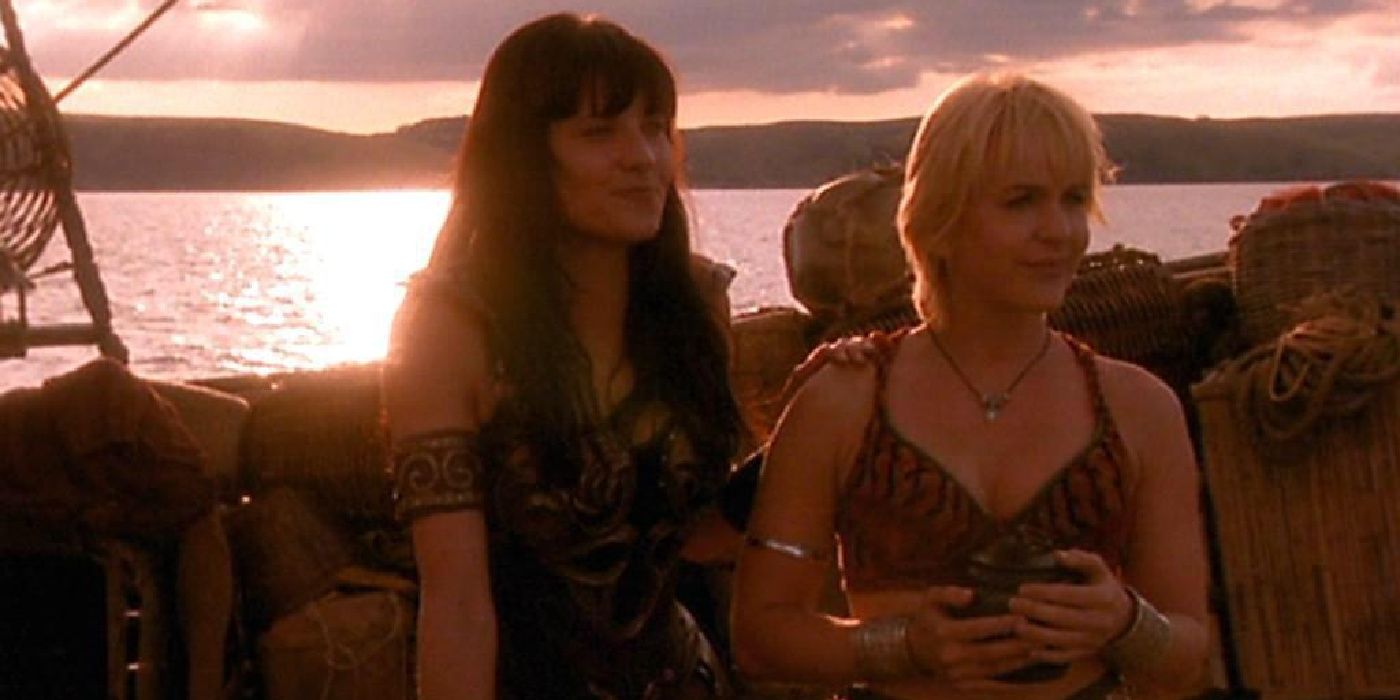When Xena: Warrior Princess concluded in 2001 with a controversial finale, viewers wondered why the creators chose to kill her off in such a brutal way. In the episode, entitled "A Friend in Need," Xena is seen fighting a vast army of Asian warriors. Peppered with arrows, she is at last beheaded by a sword-wielding Samurai. Why the writers of the show chose to give Xena such a bitter ending is still discussed by fans today — but the creators stand by their choice.
In the Xena: Warrior Princess series finale, a story from long ago in Xena's past is introduced. Xena befriended a Japanese girl named Akemi who pleaded with Xena to mercy-kill her after Akemi killed her own father. Xena honored her wishes, but an attack by Akemi's villagers forced Xena to burn down the village in her defense. In the fire, 40,000 people died, and Akemi's father transformed into the demon Lord Yodoshi. All 40,000 souls became enslaved within him, and Xena chooses to allow herself to be killed to free the people she killed so long ago.
Although the Xena finale hinted at a possible resurrection for its lead, the series ended with Xena wanting to remain dead. At the time, the writers and producers wanted a redemption story for Xena with a sense of finality, and the only real redemption they could see making sense was for Xena to die. As the show's producer Rob Tapert, who co-wrote the finale, said in a 2001 interview with The New York Post, that they felt her death was an "appropriate" way for her story to end and that it was the most effective way to pull off a proper "redemption" for Xena.
The death is not the first time Xena dies in the series, but it is the final. She is given the chance to return to life, but she cannot betray the people she wronged, so Xena pleads with Gabrielle, her soulmate, to let her die, and Gabrielle respects her wishes, sailing off to continue Xena's quest of fighting the good fight around the world. Said writer R.J. Stewart,
The reason we [killed Xena] is when this series began, it was unique. Xena was introduced on Hercules as a villain with a very high body count behind her, and the first thing I pitched to Rob was the burying of the weapons. But [a heroine who doesn’t fight] is not a series. [Xena] finds her mission, which is to redeem herself. We’ve always withheld that [ability to] forgive herself for what she’s done. She’s had to pay a great price—she was a war criminal, as painted on Hercules. So flash forward to six years later. We wanted to do a Japanese ghost story, and if we do, hell, Xena is gonna be the ghost! We thought, ‘How are we gonna bring her back to life again for the 78th time? Wait a minute—ultimate redemption may be here if she’s not brought back to life!
Those involved with the creation of the show did what they deemed fitting at the time, and there are split opinions on whether the decision was justified or harmful. As it stands, most fans are still sore about the controversial ending of the series finale, wanting something different for their ferocious heroine than a violent death in a far-off land. The undignified manner of Xena's death by decapitation was also disturbing to many viewers, and it seems something that a lot of people aren't ready to forgive the showrunners for. Whether considered justified or ill-fitting, the finale of Xena: Warrior Princess still inspires debate today.


